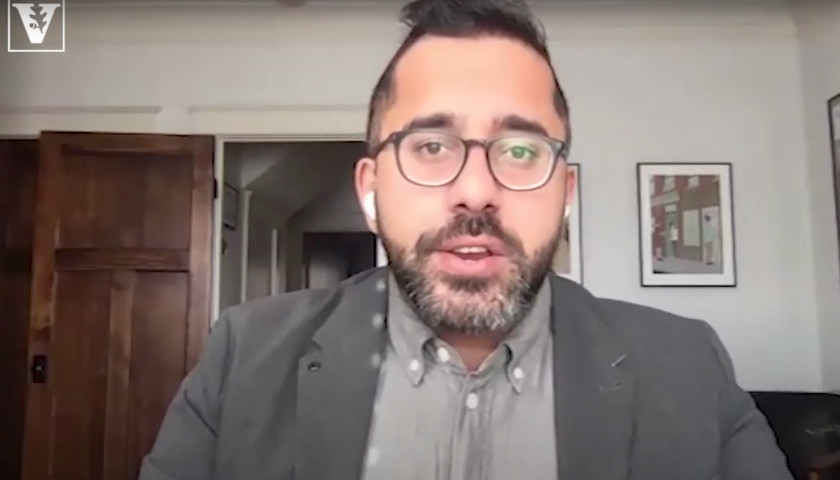Vanderbilt School of Law Professor Gautam Hans opined that social media companies should be on the offensive when it comes to regulating speech. In a spotlight series called “Ask an Expert” curated by Vanderbilt University, the assistant clinical professor suggested that these platforms ought to modify their approaches to content moderation.
In the brief video, Hans asserted that proactive approaches could improve the current dissatisfaction shared across party lines.
“It seemed to me that the platforms themselves, when it comes to how they regulate speech, have often been acting defensively in response to high-profile incidents rather than offensively trying to think about worst-case scenarios or what could arise down the line,” explained Hans. “I think that rules of transparency, of clarity, of prospective versus defensive thinking, I would hope would be articulated or at least instituted more coherently. The platforms themselves will find it in their best interests to do so to potentially stall any kind of legislative or regulatory proposal they’re not happy with.”
The Tennessee Star inquired with Hans about his take that social media platforms should be acting offensively rather than defensively. He noted the backlash caused over certain nudity policies that impacted certain posts that weren’t intended to be sexual in nature, such as breast cancer activist efforts.
“I think that the issue is that companies are trying to figure out what to do about a situation that has developed, reacting as opposed to setting out beforehand what they think about as the guidelines,” explained Hans. “A prominent example of this is that Facebook and Instagram had originally placed restrictions on nudity. There was a photo posted with a young girl who had been attacked by napalm and the platform censored it because of their content policies.”
In regard to the argument that social media platforms function more like – and should therefore be treated as – the public square, Hans noted that doing so would bring a private sector under the thumb of the government.
“It’s a challenging dynamic, and I think that the social media platforms don’t fit into those frameworks. There’s a lot of technical and sociological reasons why they may or may not be the public square,” stated Hans. “I think the move to describe it as a public square is designed to try to bring [these companies] into the First Amendment regime that governs governmental spaces. I don’t think that will happen for a number of reasons. In this country, we’re opposed to that kind of public overtaking of private property.”
Section 230 provides immunity for social media platforms concerning liability for user content. To Hans, it’s a necessary evil.
“While I am sympathetic to the idea, the current system of 230 immunity for platforms is not working very well. But I would also say that I’m not optimistic that the reforms that we’ve seen floated would be better,” asserted Hans. “One thing that’s really important is that the most recent 230 reform, which was FOSTA/SESTA about four years ago, was designed to try to deal with sexual abuse and harassment, particularly for minors and sex trafficking. I think it was a very poorly designed solution that has a lot of unintended or, at least, indirect problems for communities, particularly for sex worker basically driven underground without a lot of protections.”
FOSTA/SESTA clarified that Section 230 didn’t guarantee online providers and their users of immunity for the sexual exploitation of children or sex trafficking. Since becoming law in 2018, it has been vehemently opposed by certain groups due to its impacts on prostitution.
However, Hans doesn’t believe any of the current proposals for reform would improve the climate. In fact, he stated that they would make things worse.
“I think that most proposals would be worse than what we have now. A lot of the proposals would basically make the platforms turn into cesspools that no one would want to engage in,” stated Hans. “I understand that people are frustrated and that this is simply not working. That is objectively true. Speech is incredibly difficult to regulate in ways that are going to perfectly keep in the material that we want to support and that we want to keep out.”
Most social media platforms have expressly outlined their policies for content moderation; although, their language is vague on certain topics, such as “hate speech.” Florida announced this week that it would tackle social media censorship, becoming one of the first states drafting legislation that they say will push back against these platforms’ content moderation.
– – –
Corinne Murdock is a reporter at The Tennessee Star and the Star News Network. Follow her latest on Twitter, or email tips to [email protected].
Photo ” Gautam Hans” by The University of Vanderbilt.






I bet this “professor” would gladly assume the role of censor.
God help us!
I was sitting at a local bar here in Franklin and I told the bartender that ‘he would take off his mask when he took his shot and turned his guns in.’ The gentleman next to me said “I am OK with that.” He was an engineering professor at Vanderbilt. There’s a little hope.